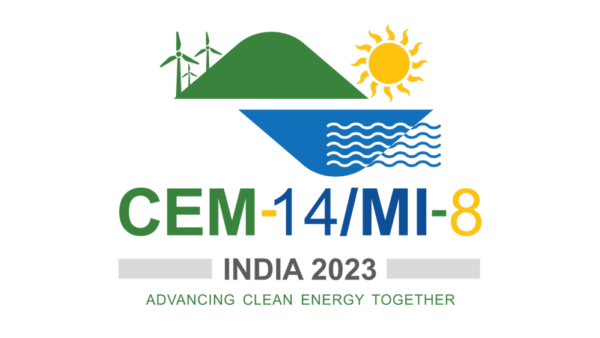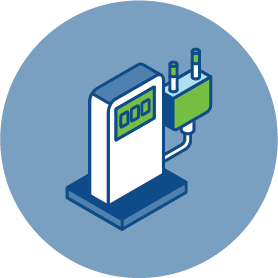Our monthly newsletter keeps you informed of the innovative new policies, technologies, tools, and actions accelerating our progress toward zero-emission transport. Zero-emission trucks and buses are delivering a healthier climate and cleaner air, as well as business, operational, and economic benefits—let’s drive to zero faster together!
The Global Commercial Vehicle Drive to Zero program and campaign (Drive to ZeroTM) is excited to participate in the 2023 Clean Energy Ministerial (CEM14/MI8), hosted by the Government of India on July 19-22 in Goa, India. This high-level global forum presents governments and key industry partners with a platform to work together and accelerate the clean energy transition.
Drive to Zero will build on the momentum for the Global Memorandum of Understanding (Global MOU) on Zero-Emission Medium- and Heavy-Duty Vehicles (ZE-MHDVs), a global agreement co-led by CALSTART and the Government of The Netherlands. Currently signed by 27 countries and over 80 industry, subnational, and other stakeholder endorsers, the Global MOU calls for a 100 percent transition to new ZE-MHDV sales by 2040 at the latest.

At CEM-14, Drive to Zero, in collaboration with The Netherlands and other ZEVWISE partners, will also be hosting noteworthy side events including the “Zero-Emission Truck High Level Ambition Group (HLAG) for India” (co-hosting with UC Davis and The Climate Group), “ZEVWISE: Zero-Emission Trucks and the Energy sector: Bridging the Gap and Financing the Transition,” and “Accelerating the Future: Zero-Emission Truck Global Expo” (see below for details).
In India, MHDVs constitute 5 percent of total automotive sales but contribute 45 percent of on-road emissions. In the world overall, MHDVs represent just 5 percent of on-road vehicles but produce 36 percent of transportation emissions. Zero-emission trucks and buses are critical to solving the climate crisis and promoting healthier air, along with delivering economic and operational benefits.
Being the 6th largest MHDV manufacturer globally and the 3rd largest in the Global South, India is well-positioned to lead in the transition to zero-emission technologies in the freight segment.
ZE-MHDVs are ready to work today—they make sense economically, they have strong and growing ranges, and there is healthy availability for purchase globally.
— Stephanie Kodish, Global Director, CALSTART / Drive to Zero
Program updates
Drive to Zero Side Events at CEM-14
Zero-Emission Truck (ZET) High Level Ambition Group (HLAG) for India
In partnership with the Institute of Transportation Studies at the University of California, Davis (ITS-Davis) and The Climate Group, ZET HLAG will bring together chief experience officers from India’s largest commercial vehicle and component manufacturers and infrastructure providers. They will work toward creating a collaborative platform to support the transition to zero-emission trucking, unlock strategic market access, and achieve scale. This event will highlight industry commitments and investment roadmaps toward zero-emission trucking, while encouraging international collaboration.
ZEVWISE: Zero-Emission Trucks and the Energy Sector: Bridging the Gap and Financing the Transition
This side event focuses on the much-needed cooperation between the transport and energy sector. It will address the key levers for a timely delivery of adequate charging infrastructure as well as key contributions the respective actors in the energy and transport domains can make and how the rollout can be financed. Furthermore, the session will explore specific challenges for emerging economies. This session is part of ZEVWISE, a series of events on zero-emission trucks and buses.
Accelerating the Future: Zero-Emission Truck (ZET) Global Expo
Presented in collaboration with local Indian partners TERI and Shakti Foundation, the ZET Global Expo aims to showcase ZE trucks and buses available worldwide, as well as charging providers and component manufacturers, to demonstrate the reality of ZET technology. The organizers will actively engage large fleet operators, shippers, and trucking associations to facilitate demand-supply integration and encourage networking with OEMs, charging infrastructure providers, NGOs, and government officials.
Program Progress and Actions
International Standard Established on Megawatt Charging
On May 31, the United States and European Union agreed on a common international standard on megawatt charging systems to recharge electric heavy-duty vehicles. Standards are essential to drive progress in times of technological discontinuity. This is a huge achievement and milestone and will allow for faster acceleration of production and deployment globally.
California Bans the Sale of New Diesel Trucks by 2036
Global MOU endorser California is leading the market by passing a first-of-its-kind regulation ensuring that from 2036 onward the state will require all new trucks to be zero-emission. At present there are already around 150 medium- and heavy-duty zero-emission trucks commercially available in the U.S., and the new rule provides regulatory certainty to this growing market while helping the state achieve its target of fully transitioning trucks traveling across California to be emissions-free by 2045.
Alternative Fuel Infrastructure Regulation (AFIR)
In March 2023, a provisional agreement for more recharging and refueling stations across Europe was reached on the AFIR proposal, which includes the following target for HDVs: each EU member state to install a minimum of one charging hub exclusively for HDVs every 60 km (TEN-T core) to 100 km (TEN-T network) in each direction of travel by 2030 with a capacity of 1400kW to 2800kW output depending on the road. Since then, some member states have announced they will go beyond the AFIR:
- Alternative fuel infrastructure: Provisional agreement for more recharging and refuelling stations across Europe
- Fully charged for 2030: Enough infrastructure for more electric trucks in 2030
Zero-Emission Truck Inventory (ZETI) Updates
On June 19, CALSTART’s Drive to Zero program delivered a presentation providing an overview of the Zero-Emission Technology Inventory as part of the First Movers Coalition Truck Working Group sponsored by the U.S. Department of State and the World Economic Forum. The ZETI tool will be the main instrument to support the FMC to surface the supply of ZE-truck technology.
The ZETI team just launched its mid-year update report quantifying the developments and trends in availability of ZE-MHDVs around the world. The Global Zero-Emission Truck and Bus Market Update offers an overview of the current status of the zero-emission truck and bus market, including model availability, vehicle range, and global availability by region. While the report provides a high-level summary of trends, the accompanying ZETI Data Explorerdelves deeper into technical details such as range, energy storage, and payload for different vehicle types and segments.
News Updates
As leaders in clean transportation convene in India, we are encouraged by developments made worldwide that will support the goals of the Global MOU.
The vast selection of electric buses now available was the highlight of the 64thannual Global Public Transport Summit in Barcelona. The event included the stunning announcement by bus manufacturer MAN that it will no longer invest in Euro-7 technologies, which include internal combustion engines, and will only offer zero-emission buses starting in 2030. Keolis won a contract worth over €600 million to run an alternative energy bus network serving 28.5 million passengers annually in the suburbs of Stockholm starting in August 2024.Wrightbus secured a £50 million loan from the British government to increase its exports of its hydrogen and battery-electric buses. Daimler Buses announced the start of production of its eCitaro fuel cell, which will be used as a range extender in buses combined with Mercedes-Benz’s lithium-ion batteries. In Canada, New Flyer was awarded a five-year contract to produce up to 621 battery-electric buses for the Toronto Transit Commission. In Mexico, Volvo Buses unveiled its new fully electric LUMINUS bus, which will be manufactured locally.
Momentum for green trucking continues to build, with Australia’s H2X announcing an order worth up to 240 million Swedish kronor (around €20.6 million) for refuse and recycling trucks to be used in the city of Gothenburg. Also in Sweden, Scania announced it is converting its plant in Södertälje to make only electric trucks in the future, with 700 to 800 employees to be trained to produce the zero-emission vehicles. Swiss building materials maker Holcim announced an order for up to 1,000 electric trucks from Volvo through 2030, with the first units to be delivered by the end of this year. Logistics expert Trucksters completed a €33 million funding round, which will help it realize its goal of becoming the first company to move goods over electrified long-distance routes in Europe. German online supermarket Flaschenpost just bought 1,000 new electric vans with the intention of serving half of its deliveries using electric vehicles by the close of 2023.
Daimler Buses announced the launch of Daimler Buses Solutions GmbH, a new subsidiary focused on designing and building e-infrastructure. Siemens unveiled its new e-Line OnBoard series pantograph for electric buses withcharging capacities of up to 600 kW. ABB E-Mobility unveiled its new HVC360 control cabinet that allows up to four charging stations to be connected with up to 360 kW of charging power. In the U.S., Schneider National completed an electric charging depot location near Los Angeles that is half the size of a football field and can charge up to 32 trucks at the same time.
Please share new information, potential partners, and innovative practices to achieve our Drive to Zero goals at info@globaldrivetozero.org. Follow us on Twitter @TeamDrivetoZero. Please feel free to share this newsletter with others.
– Justin Slosky, Technical Writer, CALSTART






